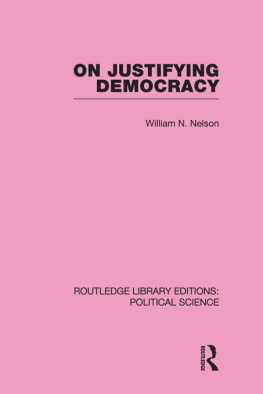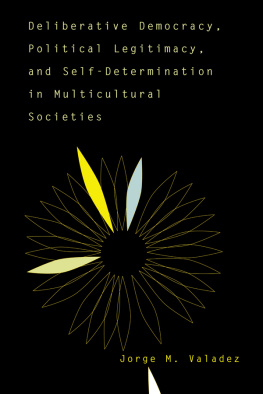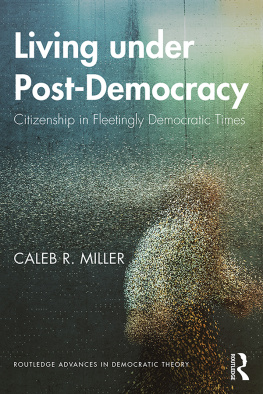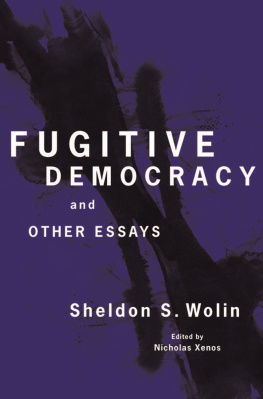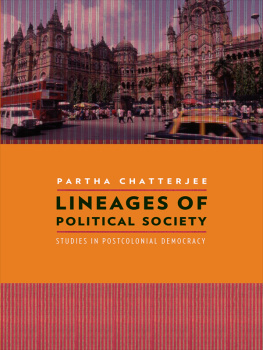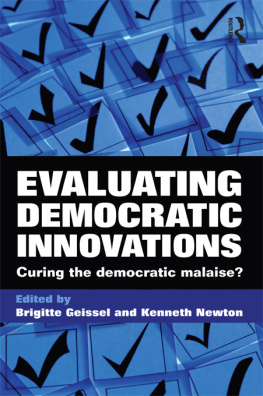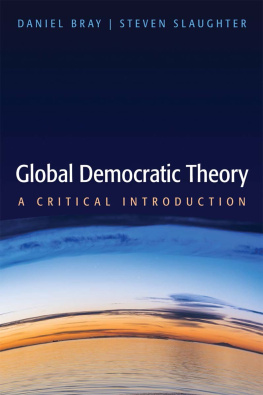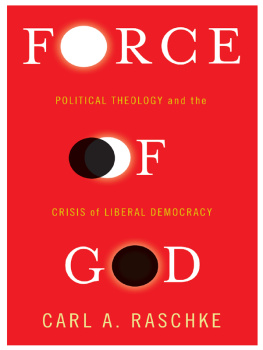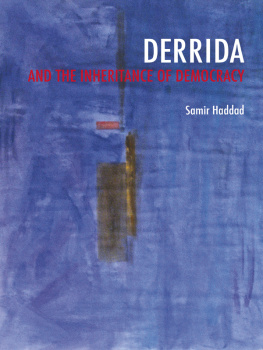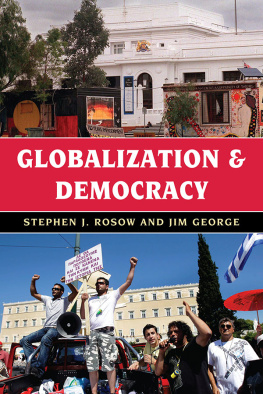ROUTLEDGE LIBRARY EDITIONS: POLITICAL SCIENCE
On Justifying Democracy
First published 1980
This edition first published in 2010
by Routledge
2 Park Square, Milton Park, Abingdon, Oxon, OX14 4RN
Simultaneously published in the USA and Canada
by Routledge
711 Third Avenue, New York, NY 10017
First issued in paperback 2012
Routledge is an imprint of the Taylor & Francis Group, an informa business
1980 William N. Nelson
All rights reserved. No part of this book may be reprinted or reproduced or utilised in any form or by any electronic, mechanical, or other means, now known or hereafter invented, including photocopying and recording, or in any information storage or retrieval system, without permission in writing from the publishers.
British Library Cataloguing in Publication Data
A catalogue record for this book is available from the British Library
ISBN 13: 978-0-415-49111-2 (Set)
Publishers Note
The publisher has gone to great lengths to ensure the quality of this reprint but points out that some imperfections in the original copies may be apparent.
Disclaimer
The publisher has made every effort to trace copyright holders and would welcome correspondence from those they have been unable to trace.
ISBN13: 978-0-415-65051-9 (PBK)
ISBN13: 978-0-415-55542-5 (HBK)
First published in 1980
by Routledge & Kegan Paul Ltd
39 Store Street, London WC1E 7DD,
9 Park Street, Boston, Mass. 02108, USA and
Broadway House, Newtown Road,
Henley-on-Thames, Oxon RG9 1EN
Set in IBM Press Roman 10 on 12 pt by
Columns of Reading
and printed in the United States of America
William N. Nelson 1980
No part of this book may be reproduced in
any form without permission from the
publisher, except for the quotation of brief
passages in criticism
British Library Cataloguing in Publication Data
Nelson, William N
On justifying democracy. (International library of philosophy).
1. Democracy
I. Title II. Series
3 21.801 JC423 80-40732
ISBN 0 7100 0653 5
For my Parents, Elizabeth W. Nelson and W. Newell Nelson
Contents
Part of the initial research for this book was supported by two summer grants, a Research Initiation Grant from the University of Houston (1973) and a Summer Stipend from the National Endowment for the Humanities (1975). I am grateful for both grants. I am also grateful to David Lyons and to Donald Lutz, each of whom read a draft of the whole manuscript and offered extensive comments and criticism. Finally, I wish to thank Christine Womack, who typed two complete drafts, and Christine LeMaire, who has typed numerous corrections and revisions in the final draft.
Is there any reason to believe that democracy is an especially good form of government? This is the most important question of democratic theory, and this book is about attempts to answer it. My ultimate aim is to offer a defense of democracy and, in the process, to examine and criticize a number of alternative answers. The constructive and critical parts of the book are not unrelated. The contrast with the theories discussed in the critical sections should illuminate the distinctive features of the positive theory. And the positive theory is designed explicitly to avoid the objections I make to the alternatives.
Theorists trained in a variety of disciplines have contributed to the development of democratic theory. While this book does not purport to be an exhaustive survey of the literature, I do discuss theories that have their origins in a number of different disciplines including economics, political sociology, and moral and political philosophy. Anyone who begins his work in one of these areas neglects work in the others only at his peril. Not only does he run the risk of having his work declared irrelevant by those who start elsewhere, but he is also likely to miss the insights that other work has generated. It is inevitable, and no doubt desirable, that ones work will be in some ways limited by the distinctive perspective of ones own discipline. Still, I hope this book shows a reasonable sensitivity to developments in other areas and I hope it preserves what is worth preserving in the work of those who start elsewhere.
My own training is in analytical moral and political philosophy, and my central concern is with the problem of justification. This explicit emphasis on the problem of justification is what distinguishes this book from much other work on democratic theory. This is not to deny that many writers on democracy have had strong convictions as to its desirability. Indeed, many ostensibly empirical or conceptual debates about the nature of democracy have been motivated by disagreements about what makes democracy desirable. In this book I examine directly the normative assumptions underlying such debates.
Any attempt to justify democracy must contend at the beginning with the following problem: A justification (or, more generally, an evaluation) of democracy seems to presuppose an account of what democracy is. But the nature of democratic government is as much a matter of dispute as is its justification. It might appear, then, that we ought to begin by deciding what democracy is. But how are we to do this? I see no reason to believe that there is only one kind of government properly called democracy. Suppose we start with one definition and find democracy, so defined, to be unjustifiable. That does not show that there is no justification for some other form of democracy. Suppose, alternatively, that we find some form of democracy justifiable. It does not follow that we ought to adopt it. Perhaps it is not feasible. Perhaps some other form, or our present form, is even better, but the arguments for it are not apparent when we look at other forms. Where should we begin?
I propose to deal with this problem by concentrating neither on questions of definition nor justification, taken in isolation, but instead on what I shall call theories of democracy. Any theory of democracy includes an account of what democracy is, an evaluation of democracy so conceived, and an account of its feasibility. When we focus on the problem of describing and comparing various theories of democracy, not only do we avoid the problem of finding an elusive essence of democracy, but we also avoid the tendency to confuse questions of definition and questions of justification or evaluation. I must emphasize, however, that my desire to distinguish these questions by no means implies an indifference to questions of evaluation. I think these are the most important questions. Perhaps the democratic ideal suggests a unity in the concept of democracy that is not to be found. But there can still be democratic ideals, and the description of a democratic ideal is a worthwhile enterprise. My problem, then, the problem of justifying democracy, is the problem of finding a conception of
Some further methodological points are in order here. (1) I do not assume, at the outset, that democracy is a good form of government. For one thing, it seems to me likely that different forms of government can correctly be called democratic, and it is quite possible that these different forms differ significantly in value. Moreover, while our pretheoretical conception of democracy may leave us considerable room to maneuver it does set some limits. I can see no good theoretical reason for assuming at the beginning that some form of government falling within these limits must be a good form of government. (2) I regard democracy as a system for making governmental decisions. Democracy is to be defined in terms of procedures, not in terms of substantive policy. While I think our ordinary use of the term provides some justification for this stipulation, I shall not try to defend it in this way. It is better regarded merely as a simplifying assumption. While there are many legitimate questions to be answered in political philosophy, one good question, certainly, is how the various institutions affecting governmental decision-making should be structured. These institutions together constitute what I think of as the governments procedures for making decisions. Their proper structure is the subject of my investigation.

